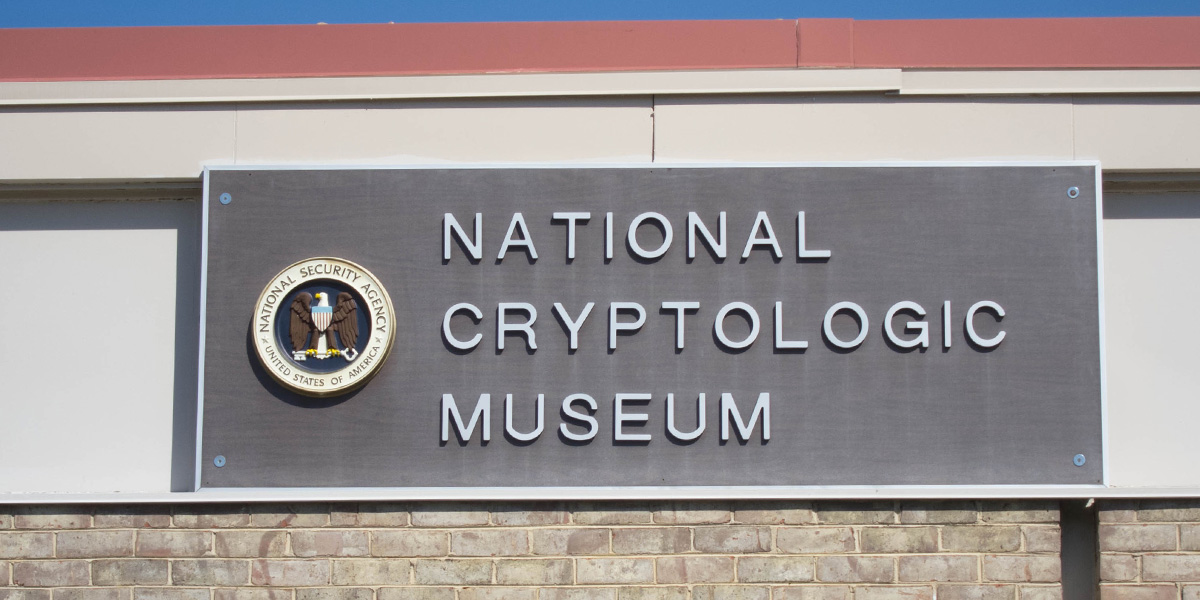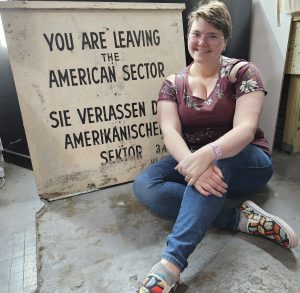A profile of MLIS alum Jennifer Robertson

With an edge beveler in hand, Jennifer Robertson whittled off the rounded leather top of an antique coffee table. The year was 2020 and she was finally repairing the furniture collecting dust in her garage. The pandemic had put a halt to her job, as it had done for many others. With an undergraduate degree in history from the University of Maryland, she had been teaching for the previous five years. Little did she expect a moment of clarity while sanding down splintering pieces of wood; she was burnt out.

UMD MLIS alum Jennifer Robertson
Robertson recalled a conversation she had with her husband after this epiphany. “Up until this point, I have made sure that you got anywhere you wanted to be in your career,” she said. “It’s my turn.”
With the love of education and history still in her grasp, she turned to the University of Maryland’s master of library and information science (MLIS) program to change her career trajectory.
Embarking on her second graduate degree after receiving a master’s in intelligence management from University of Maryland Global Campus, Robertson was all too familiar with the postgrad lifestyle. Contrary to her first master’s, she appreciated how interconnected the MLIS program was even to an online student. August 2022 saw the birth of her daughter, and she recalled how supported she felt when needing to take a semester off. She described the diversity of the program’s classes, detailing how she “came into contact with a vast amount of knowledge and different people with different backgrounds”.
But, her path through the program was winding. With many institutions still feeling the effects of the pandemic, Robertson struggled to find a field study to complete her degree. Unexpectedly, she ran into a librarian of the National Cryptologic Museum, who was desperate for an intern. Thus began a partnership that would blossom into her dream job.
Coming Full Circle
In February of this year, Robertson became the director of education at the National Cryptologic Museum. Her previous career as a teacher, as well as her docent training through the museum, allowed her to launch her role by hosting elementary, middle, and high school education sessions. According to Robertson, programming is one of the highlights of the museum’s public services. Events like scavenger hunts, football games that explain cryptanalysis, STEM nights, and in-person talks at schools and retirement communities are some of the aspects that make this museum unique. Robertson expressed how her hands-on role “makes my heart happy, makes my social meter full. I feel engaged. I’m here and attentive.”
One goal she has as the new director is “to create an educational atmosphere that interplays with universities and students, to bring in the community and give them a great educational experience but also be a place where they can research and learn”. She hopes to see the museum’s field study program embedded in colleges, available to pave the way for experiential learning.
The museum is currently in search of field study applicants for the upcoming semester. Any students interested in conducting a field study, or volunteering, at the National Cryptologic Museum should send an email to crypto_museum@nsa.gov to express their interest.